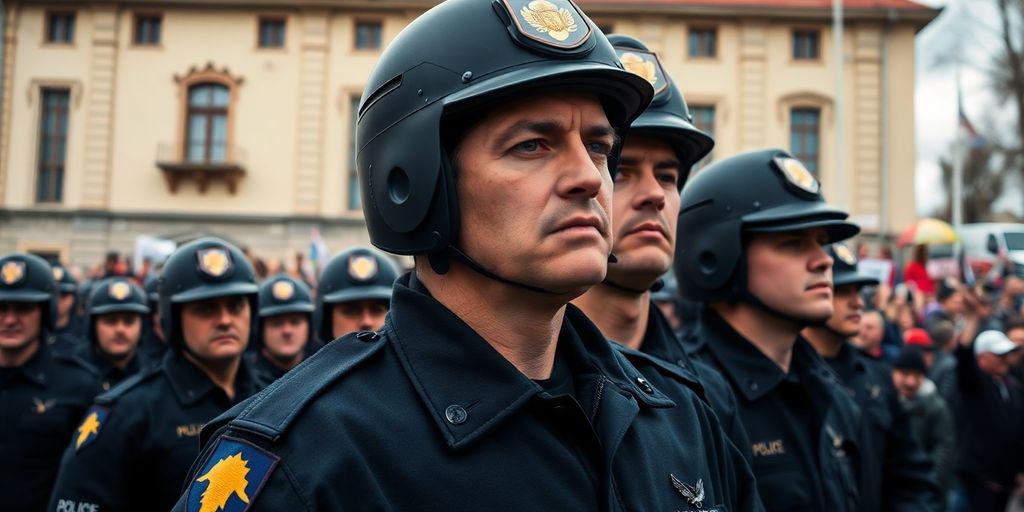Political tensions in Kosovo are testing the unity of its police force, which has been striving to represent the country’s diverse communities. As ethnic divisions deepen, the challenges faced by the police highlight the ongoing struggle for stability in the region.
Key Takeaways
- Kosovo’s police force is composed of officers from various ethnic backgrounds, including Albanian, Serb, and others.
- Political and ethnic tensions have led to significant resignations, particularly among Serb officers.
- The situation raises concerns about the police’s ability to maintain order and foster community trust.
A Historical Context
Kosovo has undergone significant changes since the end of the war in 1999, transitioning from a UN-administered territory to an independent state recognized by over 100 countries. However, Serbia and its allies, including Russia, continue to reject Kosovo’s sovereignty, contributing to ongoing ethnic tensions.
The Composition of Kosovo’s Police Force
The Kosovo Police, with approximately 8,642 officers, aims to reflect the country’s multi-ethnic makeup. The force includes:
- Albanian
- Serb
- Bosniak
- Turk
- Roma
- Ashkali
- Egyptian
- Circassian
- Gorani
- Montenegrin
Despite these efforts, the police force has faced challenges in achieving true representation and unity, particularly in the northern regions where ethnic tensions are most pronounced.
Recent Resignations and Their Impact
In 2022, a wave of resignations among Serb officers significantly impacted the police force. Over 600 Serb officers left their positions, raising concerns about the balance of ethnic representation and the police’s ability to function effectively in a multi-ethnic society. Security expert Drizan Shala noted that these departures have undermined the police’s capacity to maintain order, particularly in northern Kosovo, where local Serbian populations are often distrustful of central authorities.
The Role of Women in the Police Force
Women in the Kosovo Police face unique challenges, including gender biases and ethnic prejudices. Olga Stefanovic, a Serb officer, has navigated these challenges over her 22-year career, emphasizing the importance of building trust among colleagues from different backgrounds. Despite the male-dominated environment, women like Besiana Sejdijaj, who recently joined the force, are breaking barriers and contributing to a more inclusive police culture.
The Path Forward
The Kosovo Police’s commitment to diversity and inclusivity is crucial for fostering better relations among communities. However, ongoing political tensions and ethnic divisions pose significant obstacles. The police force must continue to work towards building trust and cooperation among its members and the communities they serve to ensure stability in the region.
As Kosovo navigates these complex dynamics, the unity of its police force will be a critical factor in shaping the future of the country and its diverse population.






